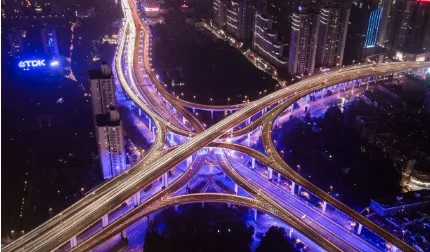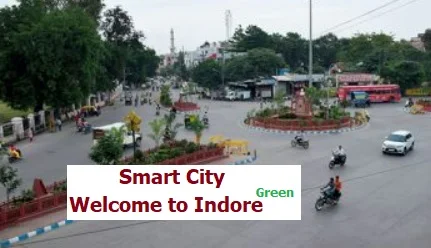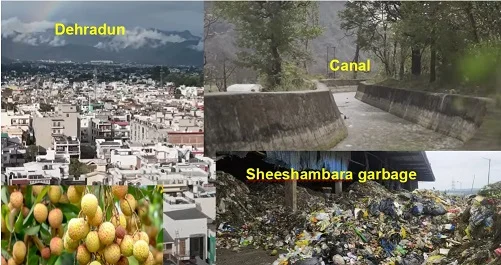Implementing efficient and green waste disposal processes is crucial for sustainable waste management in smart cities in India. Here are some strategies and technologies that can be adopted to achieve this goal:
1. Source Segregation:
Encourage residents, businesses, and institutions to segregate waste at the source into different categories such as biodegradable (organic), recyclable, and non-recyclable waste. Promote awareness and provide infrastructure for effective source segregation through public education campaigns and community engagement initiatives.
2. Biogas Generation from Organic Waste:
Implement decentralized biogas plants or bio-digesters to convert organic waste, such as kitchen waste and food scraps, into biogas and organic fertilizer. Biogas can be used as a renewable energy source for cooking, heating, or electricity generation, reducing dependence on fossil fuels and mitigating greenhouse gas emissions.
3. Composting:
Establish centralized or decentralized composting facilities to process organic waste into nutrient-rich compost. Compost can be used for soil enrichment in urban agriculture, landscaping, and horticulture projects, promoting circular economy principles and reducing the need for chemical fertilizers.
4. Recycling and Material Recovery:
Set up recycling facilities and material recovery centers to collect, sort, and process recyclable materials such as paper, cardboard, plastics, glass, and metals. Implement innovative technologies such as automated sorting systems, optical scanners, and magnetic separators to improve efficiency and maximize resource recovery rates.
5. Waste-to-Energy (WtE) Plants:
Explore the feasibility of waste-to-energy (WtE) plants that convert non-recyclable waste into electricity, heat, or biofuels through processes such as incineration, pyrolysis, or gasification. WtE technologies can help reduce the volume of waste sent to landfills, generate renewable energy, and minimize environmental pollution.
6. Plastic Waste Management:
Implement measures to reduce single-use plastics, promote alternatives such as biodegradable plastics, and establish plastic recycling facilities to process plastic waste into reusable materials. Encourage plastic waste collection drives, plastic bottle recycling programs, and plastic pollution awareness campaigns to address the growing problem of plastic pollution in urban areas.
7. E-waste Recycling:
Develop e-waste recycling infrastructure to handle electronic waste generated from discarded electronic devices and appliances. Establish collection centers, dismantling facilities, and recycling plants equipped with appropriate technologies for safe and environmentally sound e-waste recycling.
8. Smart Waste Management Systems:
Deploy smart waste management technologies such as IoT-enabled sensors, RFID tags, and GPS tracking systems to monitor waste generation, collection, and transportation in real-time. Optimize waste collection routes, schedule pickups based on demand, and improve operational efficiency to reduce fuel consumption and emissions.
9. Public Participation and Engagement:
Involve citizens, community groups, and local stakeholders in waste management initiatives through participatory planning, citizen science projects, and waste reduction campaigns. Foster a culture of waste consciousness, responsible consumption, and environmental stewardship to ensure the success and sustainability of waste disposal processes in smart cities.

By implementing these efficient and green waste disposal processes, smart cities in India can achieve significant environmental benefits, resource conservation, and public health improvements while advancing towards sustainable development goals. Collaboration between government agencies, private sector partners, civil society organizations, and the community is essential for the successful implementation and scale-up of these initiatives.
Indore: Waste management in a Smart city
Indore generates more than thousand metric ton of garbage per day. This garbage is collected from source – be it a household or any commercial outlet. Plus, emphasis is to check the open defecation also, with the extensive usage of mobile toilets.
The garbage collection is primarily through GPS enabled vehicles for tight monitoring. Multiple levels of centralized collection centres for efficient composting of wet wastes have been made to make the whole process of garbage disposal and recycling efficient.
Segregation of waste into dry waste and wet waste is also crucial. Dry Waste is the garbage, which is other than bio-degradable waste and inert street sweepings and includes recyclable and non-recyclable waste, combustible waste and sanitary napkin and diapers, etc.
Most of this segregation into dry and wet waste occurs at the source and intermediate collection centres. For example, Domestic Hazardous Waste, such as sanitary pads, lead acid batteries, etc., is collected in a separate bin which is attached at the back of the waste collection vehicle. This way composting plant will not get the trouble due to unwanted mixing.
The Domestic Hazardous Waste is sent to the Central Domestic Hazardous Waste Treatment Facility for incineration. In dry waste processing, Inert is recovered and then transferred to a sanitary landfill. The remains of Domestic Hazardous Waste, which are left after the waste is incinerated, are also sent to be landfilled. This is a separate landfill facility meant exclusively for hazardous waste and is termed as hazardous landfill.
The small composting units have also been established to improve solid waste management at the source itself. These composting units cater to a few schools, marriage gardens, hotels and vegetable markets.
This decentralized approach is quite efficient and Bio-methanation Plant for a wholesale Vegetable and fruit Market called ‘ Choitram Mandi’ is an impressive example. Here, roughly 20 ton fruit and vegetable waste is generated on daily basis. Accordingly, a Bio-methanation plant (Bio-CNG Plant) through Mahindra company was established specifically for this market waste. The pressurized Bio-CNG gas, made from this plant is used as a fuel to operate approximately 15 city buses. The digested slurry is passed through solid liquid separation unit, filtered liquid is used in slurry making and the remaining solid are dried and converted into organic compost.
Plastic waste is segregated separately with the help of community building and non-governmental organizations (NGO). This plastic waste is disposed off by two ways – one – to a cement plant and another – for rural road development. A few roads have been constructed by mixing this plastic waste in bitumen/tar.
Indore has also tried to convert a landfill site into a garden using innovation and technology. With all these cumulative and sustainable efforts, having aggressive awareness campaigns, strong administrative will and smart execution, Indore has become one of the cleanest city in India. It strives to become a “zero landfill” and “garbage-free” city with eco-friendly disposal of garbage
Landfill sites for garbage dump and waste management in other cities
Recently, to learn and emulate it in their city, a team of officials from Mumbai city administration, visited Indore to study this efficient waste management model of smart city. However, it is yet to be seen how much they can replicate it in Mumbai, which is a much bigger garbage producing metropolitan city in India.
Landfill sites for garbage dump in the outskirts of a city and even town are becoming a norm rather than exception. Though the technologies exist for garbage to energy generation, there is strong need for proper waste segregation, decentralization and micro-disposal, finding the efficient applications for generated compost, recyclable plastic and lower wattage energy. In a densely populated urban environment, it is not an easy task. Building an efficient public campaign, involving all stakeholders is also crucial. Though the cities are trying to become smart, there is a long way before all of them can truly become green in terms of their waste management.




